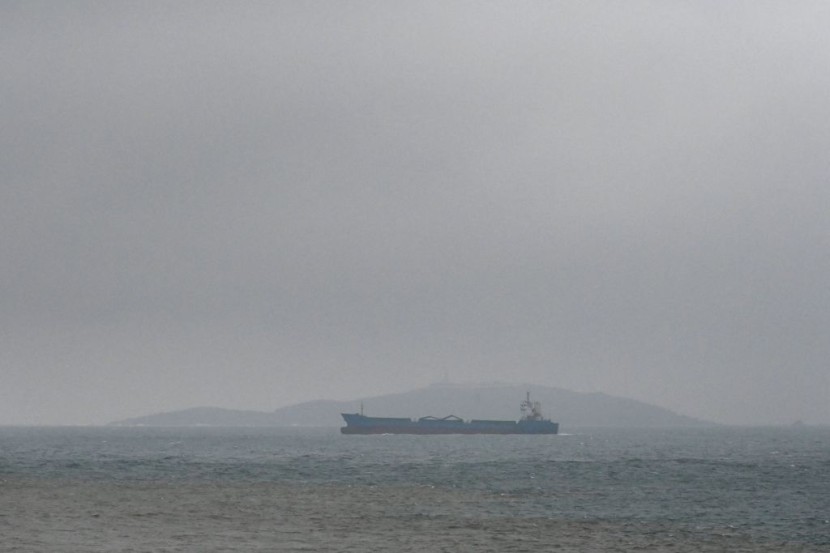
A Chinese warship came within 150 yards (137 meters) of a US destroyer in the Taiwan Strait in an "unsafe manner," according to US military officials. At the same time, China accused the US of "deliberately provoking risk" in the region.
US and Canadian navies were conducting a joint exercise in the strait separating Taiwan and China on Saturday when a Chinese ship cut in front of the US guided-missile destroyer, forcing it to slow down to avoid a collision, according to a statement from US Indo-Pacific Command.
China Accuses US of 'Provocation'
Per Reuters, China's military reprimanded the United States and Canada for "deliberately provoking risk" after their navies conducted a rare joint sail through the delicate Taiwan Strait. According to the US Indo-Pacific Command, Chung-Hoon and Montreal conducted a "routine" transit of the strait when the Chinese ship cut in front of the American ship.
The Chinese ship's closest approach was 150 yards, and its actions violated the maritime "Rules of the Road" for secure passage in international waters, according to the US command. The Canadian website Global News captured the close encounter between the ships on video and broadcast. This was the most recent near-call between the Chinese and American militaries.
The US Indo-Pacific Command reported that on May 26, a Chinese fighter jet conducted an "unnecessarily aggressive" maneuver near a US military aircraft in international airspace over the South China Sea. According to NBC News, China's defense minister said during a gathering of some of the world's top defense officials in Singapore that such so-called "freedom of navigation" patrols are provocative to China.
In his first international public address since becoming defense minister in March, General Li Shangfu told the Shangri-La Dialogue that China has no issue with "innocent passage" but that "we must prevent attempts to use that freedom of navigation (patrols), that innocent passage, to exercise hegemony of navigation."
Saturday, at the same forum, US Defense Secretary Lloyd Austin stated that the United States would not "flinch in the face of bullying or coercion" from China and would continue regularly sailing through and flying over the Taiwan Strait and the South China Sea to demonstrate that they are international waters, countering Beijing's expansive territorial claims.
On the same day, a Chinese warship intercepted a US guided-missile destroyer and a Canadian frigate as they passed through the strait between the self-governed island of Taiwan, which China claims as its territory, and mainland China. According to the US Indo-Pacific Command, the Chinese vessel overtook the American ship and veered across its bow at 150 yards in an "unsafe manner."
Read Also : Senegal Protesters Clash with Police, Killing At Least 10; Authorities Deploy Military, Block Social Media
US-China Relationship
In addition, the United States has stated that a Chinese J-16 fighter flew directly in front of a US Air Force reconnaissance aircraft snout while intercepting it over the South China Sea at the end of last month.
At a time when tensions are already high, these and previous incidents have raised concerns that an accident could lead to an escalation between the two nations. Li suggested that the US and its allies had created the peril and that the US should instead concentrate on "protecting its territorial airspace and waters."
Shortly after Austin spoke on Saturday, People's Liberation Army Lieutenant General Jing Jianfeng told Chinese state broadcaster CCTV that Austin's remarks on Taiwan were "entirely incorrect."
The governing Communist Party of China claims Taiwan as part of its territory, despite never having controlled it, and its increasingly frequent military exercises near the island have raised concerns regarding the extent to which it will pursue this claim. Xi Jinping, the leader of China, has expressly not ruled out the use of force.
The comments by the Chinese and American defense chiefs come at a tense moment for bilateral relations. China recently rebuffed an offer from Austin to meet at the Singapore summit, citing US sanctions against Chinese officials and companies.
Austin mentioned in his Saturday speech that he and Li welcomed each other with a smile at a banquet on Friday night. However, he urged Beijing to do more, stating that "a cordial handshake over dinner is no substitute" for genuine negotiations.
Per CNN, the absence of a meeting between the US and Chinese defense commanders this year indicates the severity of the rift between the two countries. China's refusal to meet with the United States at the conference was deemed "unfortunate" by Austin on Thursday, who warned that the lack of communication could lead to "an incident that could rapidly escalate out of control."
In his speech on Saturday morning, Austin criticized China for its "alarming number of hazardous intercepts of US and allied aircraft" in international airspace. He added that the United States would support allies and partners against "coercion and intimidation."
Related Article: US Seeks Explosives in Japan for Ukraine After Tokyo Donates 100 Military Vehicles to Kyiv








